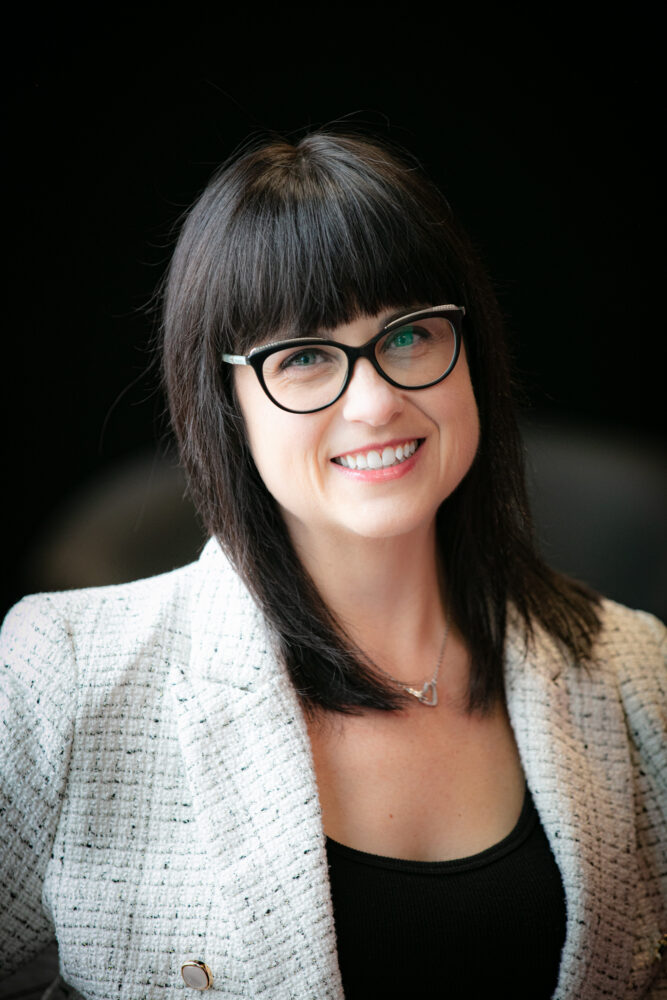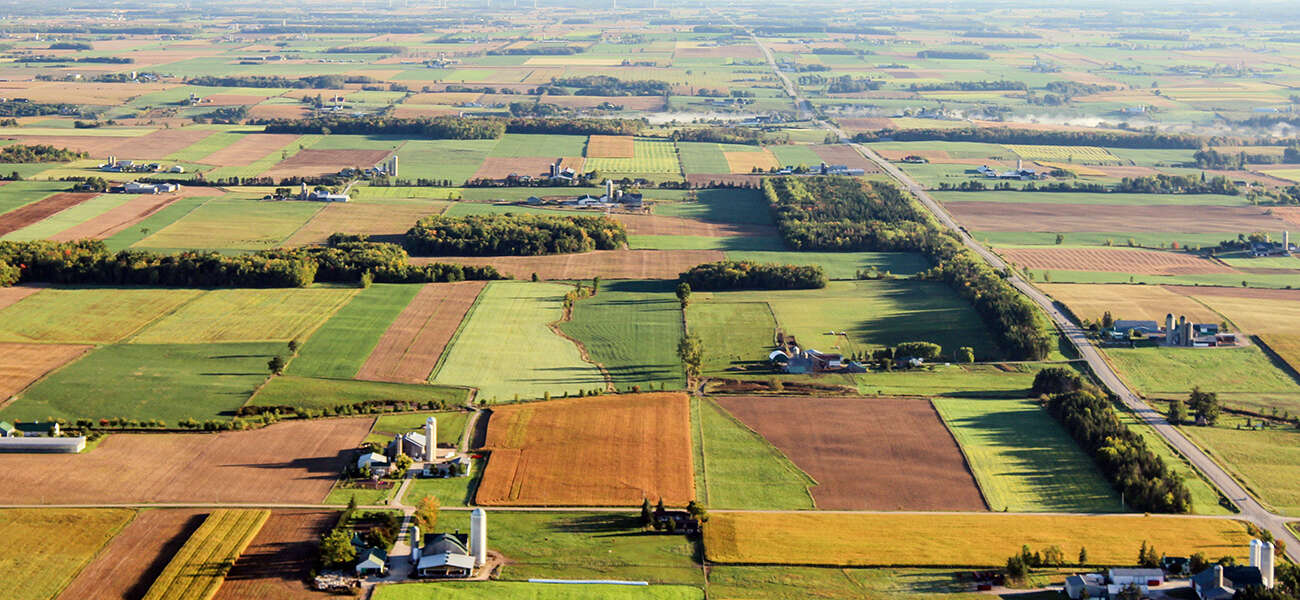
Converting farmland to urban development can create infrastructure for cities, but the loss comes at a cost to Canada’s agri-food sector, says a University of Guelph rural planning researcher.
Dr. Sara Epp is a professor in the Ontario Agricultural College who researches agricultural planning and land use conflicts. She says changes to urban boundaries often encroach on valuable farmland, and there are rarely policy protections to keep that land safe.
“The agri-food system depends on a stable land base in order to produce food and other goods,” Epp says. “When the land base is eroded for non-farmland use, farming in general becomes more difficult, due to the loss of farms, closure of farm-related businesses and conflicts when farms and food production spaces are too close to homes and businesses.”
Epp, who works in the School of Environmental Design and Rural Development, collaborates with rural communities across Ontario, measuring farmland loss and examining issues related to that loss. Between 2000 and 2017, more than 29,000 hectares of agricultural lands were converted to non-agricultural uses through 545 separate amendments across southern Ontario. More recent data is expected to be released at the end of 2024.
“When municipalities plan to convert agricultural land into housing or industrial space, that farmland is effectively lost. Once the land is paved, it can’t be farmland again,” Epp says. “Tracking the loss of agricultural land can help with short- and long-term strategic plans to support the continued success of Ontario’s agricultural sector.”
Epp works with municipalities across Ontario, analyzing planning decisions to convert agricultural land to other uses and exploring ways for the agri-food industry to better support agricultural production, rural communities and the long-term viability of the sector across the province.
“Making sure agri-food stakeholders in rural municipalities are part of the policy conversation is an important step,” Epp says. “Policies need to consider both farmland preservation and how the sector can be supported and strengthened, so that land isn’t protected in vain.”
Epp is available for interviews.
Contact:
Dr. Sara Epp
sepp@uoguelph.ca
